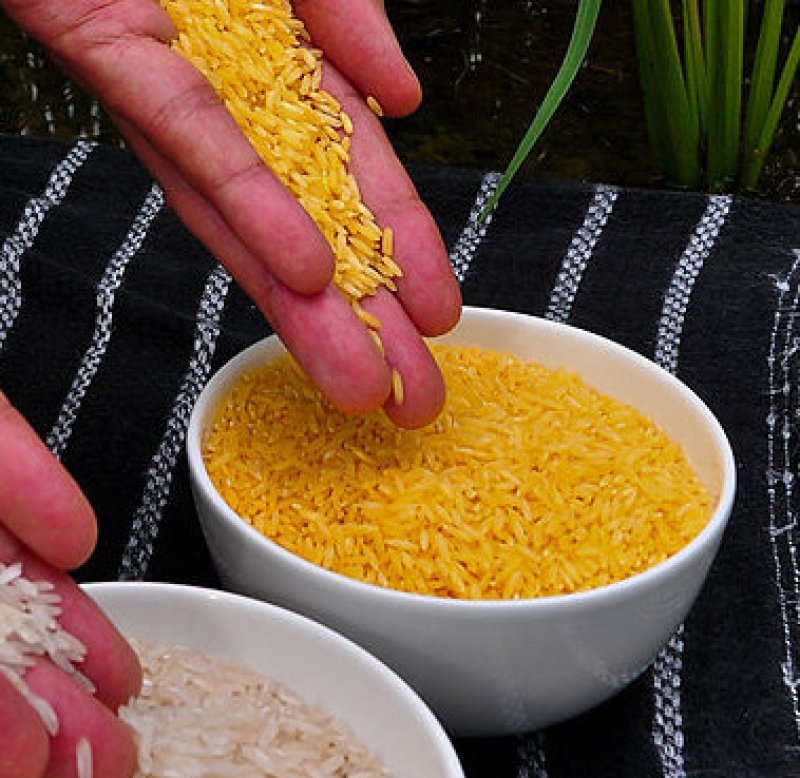The GLP aggregated and excerpted this blog/article to reflect the diversity of news, opinion and analysis.
“This Rice Could Save a Million Kids a Year,” announced a Time magazine cover back in 2000. Orange in color, the rice is genetically modified to contain a jolt of beta-carotene, the stuff that gives carrots their hue and that our bodies transform into vitamin A. Diets deficient in that key micronutrient are the leading cause of blindness of children in the global south, where rice tends to be a staple grain. A decade and a half since the Time article, golden rice has yet to be planted commercially — but it continues generating bumper crops of hype…
If golden rice is such a panacea, why does it flourish only in headlines, far from the farm fields where it’s intended to grow? The short answer is that the plant breeders have yet to concoct varieties of it that work as well in the field as existing rice strains. This is made all the more challenging in the face of debates over genetically modified crops and eternal disputes about how they should be regulated.
. . . .
Meanwhile, as the IRRI scrambles to perfect golden rice, the prevalence of vitamin A deficiency is declining in the Philippines. . . .
But VAD, as the deficiency’s known, remains a huge scourge on the Indian subcontinent and in Africa, the study found, affecting more than 40 percent of children in both regions. Whether golden rice will ever help mitigate that ongoing tragedy won’t likely be known for some time. But the technology’s hardly the slam-dunk panacea its advocates insist it is.
Read full, original post: WTF Happened to Golden Rice?































